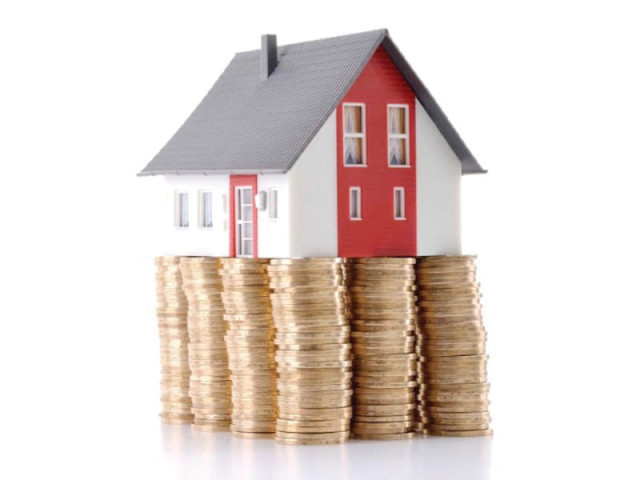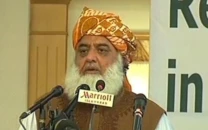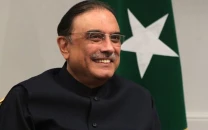A right step towards affordable housing for all
PTI government's initiative for long-neglected housing sector lauded

The need for a roof under the open sky can hardly be underestimated. What to talk of humans, birds and animals head towards their abodes when dusk falls in order to revitalise themselves before dawn. It is further underscored when we believe that prime responsibility of a welfare state is to provide its citizens with food, shelter and clothing, besides other allied civic amenities to make their lives comfortable to live.
It is, however, sad to point out that a lethal mix of financial, administrative, and regulatory hiccups hindered governments in the past from pursuing this fundamental responsibility of arranging affordable shelters for the homeless. But fortunately, PTI rightly prioritised this long-neglected social need in its manifesto before even coming to power in 2018.
To put their election promise into reality, the present government has taken extraordinary measures. Besides establishing ‘Shelter Homes’ (Panah Gah) for the downtrodden, it has established Naya Pakistan Housing & Development Authority (NAPHDA) to plan, construct, and manage real estate development projects, including housing. NAPHDA will offer one window solution to all investors and builders working in the field of housing.
The Authority will not only carry out feasibility studies, and technical surveys but would also interact with banks and other financial institutions to obtain mortgage loans/financing for offering low-cost housing facilities to less-privileged segments of society. Being development arm of the federal government, NAPHDA plans to pursue multiple development projects in the realm of housing and infrastructure across Pakistan, both on profit and non-profit basis.
Working under the direct patronage of Prime Minister Imran Khan, representatives of relevant stakeholders both from public and private sectors constitute its Policy Board. National Coordination Committee on Housing, headed by LT Gen (R) Anwar Ali Hyder, Chairman Naya Pakistan Housing & Development Authority, has been created to remove bottlenecks in the process of seeking funds from banks for house-building projects.
Government has also established Construction Industry Development Board (CIDB) to facilitate the construction sector by simplifying the regulatory framework. It is rightly believed that simplified documentation and approval process would attract more investment in the construction projects, making more housing units available for the public. For this purpose, the government plans to spend around Rs18 Billion during the current fiscal year for physical planning and housing programs.
To further facilitate the housing and construction sector in the country, the government has also announced a lucrative tax relief package. It includes tax incentives, waivers and subsidies in sales tax, capital gains tax, and withholding tax. It also includes subsidy on 5 and 10 marla houses, and allocation of 5% banks’ financing for house building.
Fixed tax regime at the rate of per square yard or per square meter is being introduced for the investors in housing sector. Further 90% rebate on this fixed tax would also be offered to those investors who opt to register their housing projects under Naya Pakistan Housing Program till 31 December 2020.
Such investors would not be even asked for the sources of their income. According to Federal Board of Revenue (FBR), during the outgoing month a total of 127 construction projects worth Rs.63 billion have been registered under the scheme, whereas 108 persons were also in the process of registering 114 projects costing Rs109 billion.
Among these projects, 61 would be developed in Karachi, 44 in Lahore, 30 in Islamabad, 19 in Rawalpindi, 10 in Faisalabad and rest in other cities.
With an ambitious target of constructing 5 million housing units in the country, the government launched Phase-I of Naya Pakistan Housing Project in July 2020 to build 100,000 units initially. The commercial banks have been directed to allocate 5% of their lending portfolio to the construction industry, which would generate over Rs 300 Billion for financing the building activities, whereas government would provide Rs 30 Billion subsidy to the poor for owning their own housing units. All these measures are aimed at incentivizing the construction industry, which would not only revitalise 40 allied industries but would also create massive employment opportunities in the country.
Federal Government Employees Housing Authority (FGEHA) has also geared up to address annual requirement of 400,000 housing units in the country. It is pursuing joint venture housing projects on private land, and government to government programs on government land.
The government also revived various stalled housing projects in December 2019, including Green Enclave-I Bhara Kahu project to allot 3282 plots to the applicants.
The FGEHA allotted 5198 plots under Sky Garden project after its revival in July 2020 and allotted 3240 plots under Lifestyle Residency Apartments G-13 scheme.
The Prime Minister inaugurated Kashmir Avenue G-13 Islamabad scheme to build 1467 apartments; 3,432 apartments to be built under Chaklala Heights Rawalpindi scheme, 3945 apartments under SkyLine Apartments Islamabad scheme and 1258 under Lifestyle Residency Lahore scheme.
The Federal Government signed Memorandum of Understandings (MoUs) with provincial governments under government to government housing schemes targeting 798 apartments in Azad Jammu and Kashmir, 16,000 apartments for fishermen, 18,000 apartments and 12,000 plots for general public in Balochistan, and 750 apartments in Khyber Pakhtunkhwa.
However, it is strongly felt that in order for all these measures to succeed, NAPHDA should give private builders and developers specific targets to construct low cost housing units, and ask the banks to provide finances for that on viable conditions.


1724319076-0/Untitled-design-(5)1724319076-0-208x130.webp)
















COMMENTS
Comments are moderated and generally will be posted if they are on-topic and not abusive.
For more information, please see our Comments FAQ